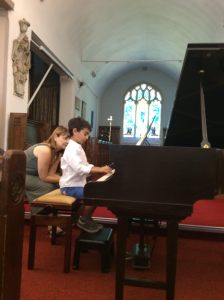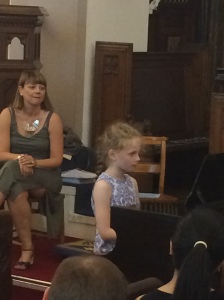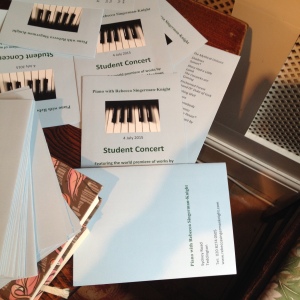On Saturday 4th July I was delighted to host my Summer concert at St Mary with St Alban Church in Teddington.

Me with all the performers
Twenty of my young pupils, aged between 4 and 11, performed in the concert to an audience of about fifty family members and friends. Four of them performed pieces that they had composed themselves. All of them introduced themselves and their pieces clearly.
I am a big believer in providing opportunities for my students to perform. It has so many benefits; the experience of preparing music to a high standard, sharing their music with a wider audience and the confidence and sense of achievement that comes with overcoming nerves and showing what they are capable of. Watching other children perform enables them to discover a range of music that they may like to play too – and, for the very youngest – allows them to see what they will be able to achieve in the future!
The mother of one of the performers wrote to me the following day, saying:
“I wanted to say that I was really struck by what a lovely recital it was – the atmosphere was relaxed but very focused. There was no tension and all of the performers were playing within their ability – so, as a listener, I never felt nervous wondering if they would get through a piece!!”
I was so proud of all my students after the concert – they had all worked so hard in preparing their pieces, and they all performed with enthusiasm and confidence on the day itself. I am already looking forward to the next concert – at Christmas!







